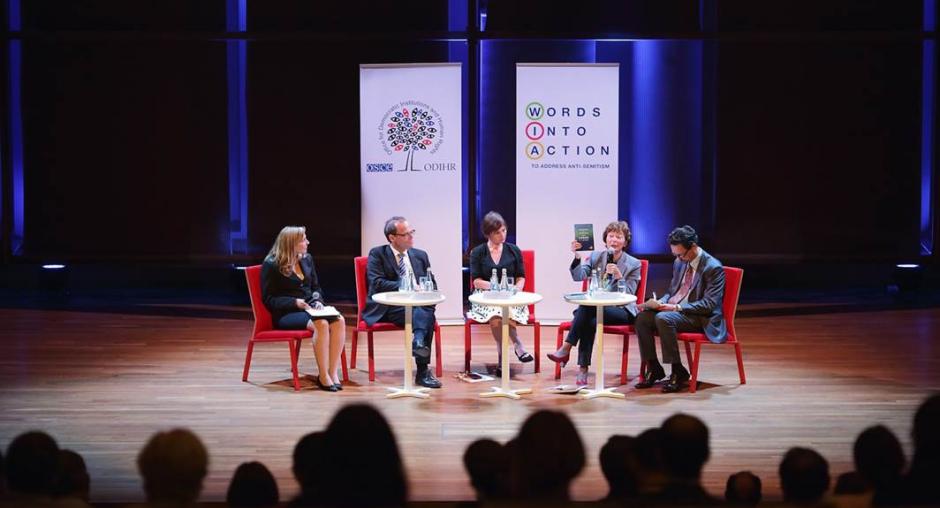Education, security and coalition-building at the heart of OSCE/ODIHR project on addressing anti-Semitism and other forms of intolerance

WARSAW, 28 September 2016 – The OSCE Office for Democratic Institutions and Human Rights (ODIHR) is unveiling today a project focused on addressing the security needs of Jewish communities, fostering coalition building among different communities, and countering anti-Semitism through education, at an event in Warsaw.
The official launch of the Turning Words Into Action to Address Anti-Semitism project, which is financed by Germany, on the initiative of the German parliament, is being held at the POLIN Museum of the History of Polish Jews, in Warsaw. The project will run from 2016 to the end of 2018.
Noting that the promotion of tolerance and non-discrimination are key themes of the German OSCE Chairmanship, Eberhard Pohl, Germany’s OSCE Ambassador and Chair of the OSCE Permanent Council in 2016, said: “Anti-Semitism is a danger not only for Jewish people. Discrimination and intolerance affect individual human beings, however, they must be of concern to all citizens and society at large.”
Felix Klein, Special Representative of the German Foreign Office for relations with Jewish organizations, urged all to stand firm with a broad alliance of governments, and international and non-governmental organizations in embedding the fight against all forms of anti-Semitism in our societies and political cultures.
“With a clear basis in the will of all OSCE participating States expressed over many years, this project sets out to help turn words into action by providing government officials, parliamentarians and civil society with the knowledge and skills they need to effectively address anti-Semitism and other forms of intolerance,” said ODIHR Director Michael Georg Link.
The launch event opens with a panel discussion, organized as a side event during the Human Dimension Implementation Meeting, held over the last two weeks in Warsaw. The discussion focuses on how education can help address anti-Semitism and other forms of intolerance. Łucja Koch, Head of the Education Department at the POLIN Museum, emphasized the important work accomplished by the museum in this area.
“Universal, timeless conclusions can be drawn from the history of Polish Jews, as presented at the POLIN Museum. These, notably, have to do with respect for people of different languages, religions, or skin colour, the rights of minorities, and the need to counter discrimination, anti-Semitism, and racism” Koch said. “Europe, including Poland, is today witnessing growing xenophobia and anti-Semitism, which even more clearly demonstrates the museum’s crucial role in the public discussion of such matters.”
Upcoming activities within the framework of the project include the publication of a toolkit to address policies and practical aspects to promote the security of Jewish communities in line with the international human rights framework, as well consultations with governments, education experts and community representatives on the best ways to produce education policy guidance and supporting materials for teachers.
